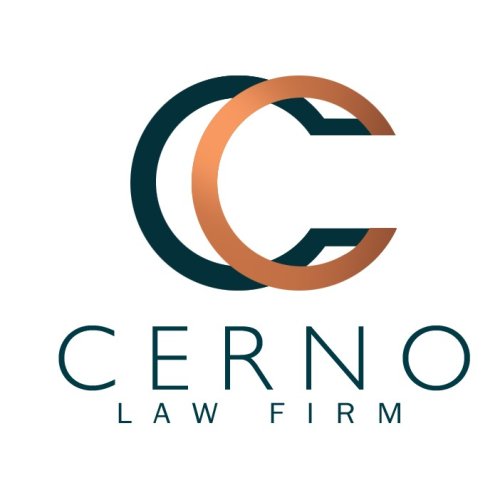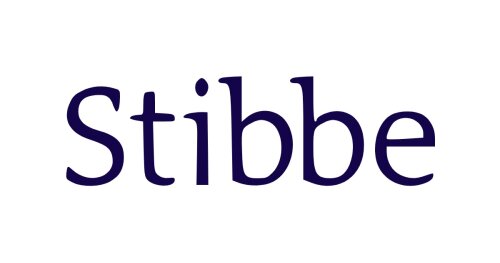Best Bankruptcy & Debt Lawyers in Luxembourg
Share your needs with us, get contacted by law firms.
Free. Takes 2 min.
Or refine your search by selecting a city:
List of the best lawyers in Luxembourg
About Bankruptcy & Debt Law in Luxembourg
In Luxembourg, bankruptcy and debt laws are designed to provide a structured process for dealing with insolvency situations. This includes regulations for both individuals and businesses dealing with financial distress. The primary goal is to ensure fair and orderly distribution of assets to creditors and to potentially rehabilitate viable businesses. Luxembourg's legal framework offers various procedures such as bankruptcy (faillite), controlled management (gestion contrôlée), and composition with creditors (concordat préventif de faillite). These processes are regulated by commercial courts and involve complex legal criteria and requirements.
Why You May Need a Lawyer
Legal advice is often necessary in bankruptcy and debt situations for several reasons:
- Understanding Legal Processes: Bankruptcy laws can be complex, and a lawyer can help navigate the intricate procedures.
- Protecting Your Rights: A legal expert ensures your rights are protected during negotiations with creditors and in court proceedings.
- Crafting a Plan: Lawyers can assist in crafting debt repayment plans or negotiating terms that may prevent bankruptcy altogether.
- Filing for Bankruptcy: The process of filing for bankruptcy requires detailed and accurate documentation that a lawyer can help prepare.
- Avoiding Mistakes: Legal professionals can prevent costly mistakes that could hinder your financial recovery process.
Local Laws Overview
The bankruptcy and debt laws in Luxembourg are rooted in the Commercial Code and other legislative instruments, which set out different procedures for handling insolvency:
- Bankruptcy (Faillite): Applies to traders and commercial companies that are unable to meet their financial obligations.
- Non-Commercial Bankruptcy: Individuals can be subjected to bankruptcy proceedings under certain conditions, particularly if engaged in business activities.
- Controlled Management (Gestion Contrôlée): This procedure allows debtors to restructure or liquidate under court supervision.
- Voluntary Arrangement (Concordat Préventif de Faillite): A court-sanctioned arrangement for debtors to settle their debts on agreed terms with creditors.
- Banking Secrecy and GDPR Compliance: Laws that protect personal data and confidentiality, relevant in collections and debtor-creditor communications.
Frequently Asked Questions
What is bankruptcy in Luxembourg?
Bankruptcy in Luxembourg is a legal state declared by commercial courts where a debtor is unable to repay their debts to creditors. The process involves the liquidation of assets to pay off debts.
Can individuals declare bankruptcy?
Yes, individuals can declare bankruptcy if they have engaged in business activities and meet the criteria set by the relevant laws.
What does "controlled management" mean?
Controlled management is a court-supervised procedure for restructuring or liquidating a debtor’s affairs when they cannot meet their liabilities as they fall due.
How does debt restructuring work?
Debt restructuring involves reorganizing the debtor's obligations to make them more manageable, often requiring negotiation with creditors, potentially resulting in reduced interest rates or extended repayment terms.
What is the role of a bankruptcy trustee?
A bankruptcy trustee is appointed to manage the debtor's estate during the bankruptcy process, ensuring fair distribution of assets to creditors.
How long does the bankruptcy process take?
The duration of the bankruptcy process can vary, depending on the complexity of the debtor's financial situation and the legal proceedings involved.
Can bankruptcy be avoided?
Bankruptcy may be avoidable through debt restructuring, negotiation, or entering into a voluntary arrangement with creditors.
Are personal assets protected in bankruptcy proceedings?
Certain personal assets may be protected under Luxembourg law, depending on the nature and value of the assets and specific legal exemptions.
Who can file for a voluntary arrangement?
Any debtor can apply for a voluntary arrangement if they can propose an acceptable settlement to their creditors and it is approved by the court.
What happens after bankruptcy is concluded?
Following bankruptcy conclusion, the debtor's remaining debts are generally discharged, allowing them to restart their financial life, but certain conditions and restrictions may apply.
Additional Resources
Several resources are available for individuals seeking information or assistance with bankruptcy and debt matters in Luxembourg:
- Luxembourg Chamber of Commerce: Provides guidance on insolvency procedures for businesses.
- CSSF (Commission de Surveillance du Secteur Financier): Offers information on financial regulations and consumer protection.
- Bar Association of Luxembourg: Directory of legal practitioners specialized in bankruptcy and debt law.
- Consumer Protection Association: Assists individuals with debt issues and financial disputes.
- Government Websites: Offer comprehensive information on relevant laws and procedures.
Next Steps
If you require legal assistance with bankruptcy and debt issues in Luxembourg, consider the following steps:
- Consult a Lawyer: Seek advice from a lawyer specializing in bankruptcy and debt law to assess your situation and discuss legal options.
- Gather Documentation: Compile all financial documents, contracts, and correspondence with creditors to provide a comprehensive overview of your financial circumstances.
- Explore Alternatives: Consider debt restructuring, negotiation, or mediation as potential alternatives to formal bankruptcy proceedings.
- Prepare for Court Proceedings: If necessary, prepare thoroughly with legal assistance to navigate court processes effectively.
- Regularly Review Financial Status: Post-resolution, continually monitor your financial health to avoid future insolvency risks.
Lawzana helps you find the best lawyers and law firms in Luxembourg through a curated and pre-screened list of qualified legal professionals. Our platform offers rankings and detailed profiles of attorneys and law firms, allowing you to compare based on practice areas, including Bankruptcy & Debt, experience, and client feedback.
Each profile includes a description of the firm's areas of practice, client reviews, team members and partners, year of establishment, spoken languages, office locations, contact information, social media presence, and any published articles or resources. Most firms on our platform speak English and are experienced in both local and international legal matters.
Get a quote from top-rated law firms in Luxembourg — quickly, securely, and without unnecessary hassle.
Disclaimer:
The information provided on this page is for general informational purposes only and does not constitute legal advice. While we strive to ensure the accuracy and relevance of the content, legal information may change over time, and interpretations of the law can vary. You should always consult with a qualified legal professional for advice specific to your situation.
We disclaim all liability for actions taken or not taken based on the content of this page. If you believe any information is incorrect or outdated, please contact us, and we will review and update it where appropriate.
Browse bankruptcy & debt law firms by service in Luxembourg
Luxembourg Attorneys in related practice areas.
Browse bankruptcy & debt law firms by city in Luxembourg
Refine your search by selecting a city.















